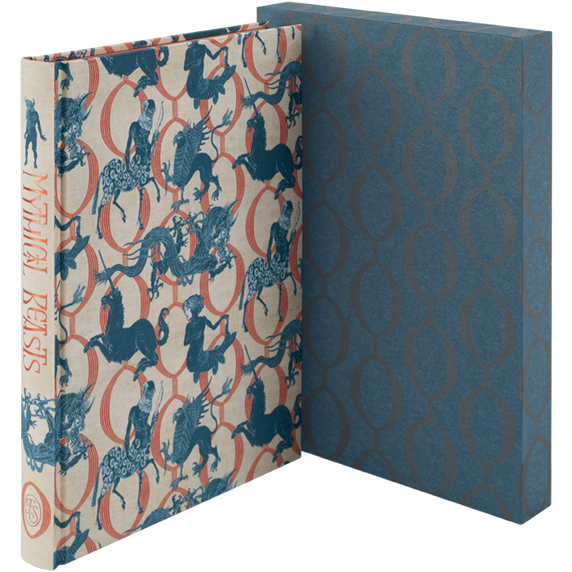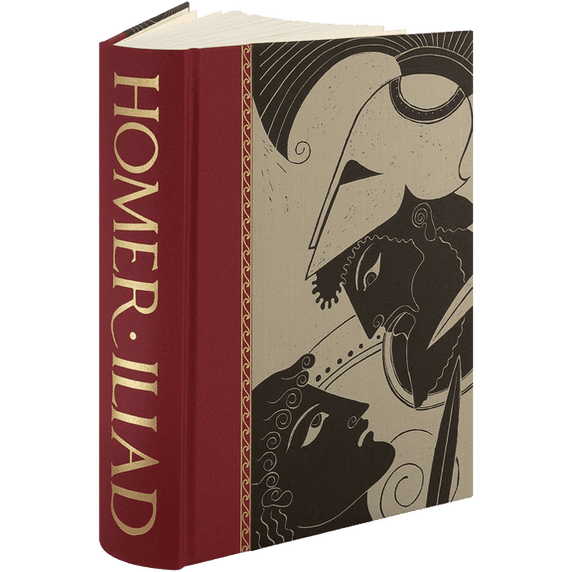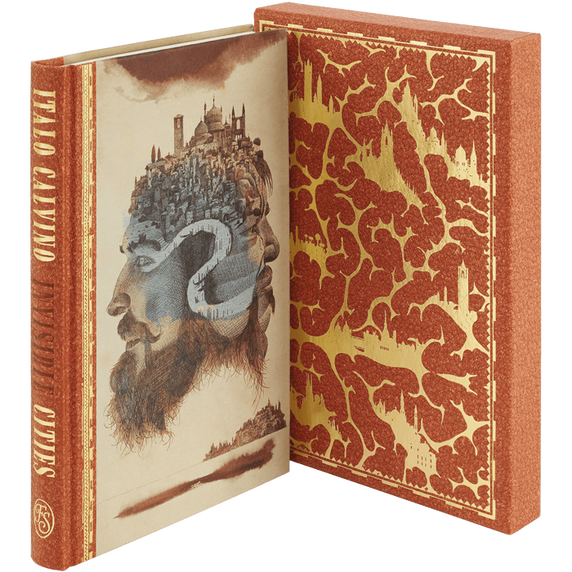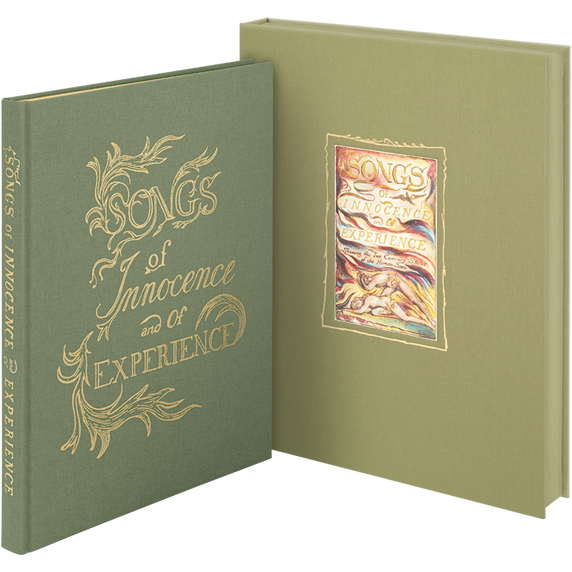

A fascinating history of the creatures that populate myths and folklore, John Cherry’s Mythical Beasts is beautifully reimagined as a Folio edition illustrated with archive images and Neil Packer’s striking new motifs and binding design.

Dante Alighieri
Illustrated by Neil Packer
Translated by Robin Kirkpatrick
Essay by Jhumpa Lahiri
An exceptional Folio edition celebrating more than 700 years of Dante’s monumental work, The Divine Comedy is illustrated by Neil Packer and includes an exclusive essay by Jhumpa Lahiri.
‘Dante and Shakespeare divide the world between them. There is no third.’
- T. S. Eliot
Celebrating one of the greatest classics of world literature, this exquisite edition features Robin Kirkpatrick’s acclaimed translation, written in three-line rhyming stanzas to follow Dante’s terza rima scheme. From the earliest manuscripts, a tradition of illustration has surrounded The Divine Comedy and Neil Packer has created illustrations for all 100 cantos, drawing out details from the text. Packer’s work draws on diverse influences including English woodblock prints from the 1930s, North African designs and Art Deco, and it extends to exquisite hand-drawn lettering and a striking binding design. A specially commissioned essay by Pulitzer Prize-winning author, Jhumpa Lahiri, completes this extraordinary edition. Written in 33 passages, mirroring the cantos, her thoughts range from film to numerology in an entertaining and absorbing piece.
Bound in printed and blocked textured paper
Set in Dante
648 pages
Printed 2-colour throughout, 3 full-page colour illustrations, 100 illustrations in total
Gold metallic printed endpapers
Ribbon marker
Printed and blocked slipcase
10˝ x 6¾˝
Notably written in Italian rather than Latin, Dante’s poem explores love, death and belief and has been hugely influential for centuries. Beatrice, symbol of divine grace, sends Virgil to guide Dante through Hell and up the slopes of Purgatory before she, a woman who in life the poet idolised, leads him into Heaven. His journey towards spiritual enlightenment is peopled with legendary and historical figures, but also with his contemporaries. Packed with symbolism, metaphor and allusion, in cantos written with unmatched poetic elegance, the influence of The Divine Comedy is ever-present, from music to art to literature and still resonates with readers after 700 years.
About Dante Alighieri
Dante Alighieri was born in Florence around 1265, into a family which he claimed descended from the ancient Romans. Little is known of his education, but in his youth he associated with many of the best-known poets, musicians and artists of the day. He entered politics in 1295 and became one of the six governing Priors of Florence in 1300, but was forced into exile with his party in 1301. He wrote, taught and lectured, producing the Vita Nuova, Convivio, De Monarchia and the Divina Commedia, which is widely considered the greatest work of Italian literature. He died in Ravenna in 1321.
About Neil Packer
Neil Packer was born in Birmingham in 1961. He trained at the Colchester School of Art before becoming a full-time illustrator in 1984 with the publication of his first children’s book. He has had a long career working in design, publishing and advertising, mostly in the United States. He has illustrated a number of titles for The Folio Society, including I, Claudius (1994), The Name of the Rose (2001), Catch-22 (2004), One Hundred Years of Solitude (2006), Foucault’s Pendulum (2016), Mythical Beasts (2021), The Divine Comedy (2022) and The Complete Plays by William Shakespeare (2023). Packer’s work has been exhibited in London, Singapore and the United States.
About Jhumpa Lahiri
Born in London to Indian parents in 1967, Jhumpa Lahiri moved to America as a child. In 2000 she became the youngest winner of a Pulitzer Prize for her first short story collection Interpreter of Maladies. The recipient of numerous awards and fellowships, her novels include The Namesake and The Lowland. Having lived in Rome for some years, Lahiri has returned to America to teach creative writing at Princeton University. She writes in Italian and has recently published a translation of her first Italian novel, Dove mi trovo, as Whereabouts.
About Robin Kirkpatrick
Robin Kirkpatrick is Emeritus Professor of Italian and English Literature at the University of Cambridge. He has written numerous books on Dante and on the Renaissance including The European Renaissance 1400–1600 and English and Italian Literature from Dante to Shakespeare. His translation of The Divine Comedy, written in three-line rhyming stanzas to follow Dante’s verse, was first published in 2006–7.



A fascinating history of the creatures that populate myths and folklore, John Cherry’s Mythical Beasts is beautifully reimagined as a Folio edition illustrated with archive images and Neil Packer’s striking new motifs and binding design.

Homer’s epic poem relating a bloody clash of powers transcends the centuries in the hands of translator Robert Fagles, and is transformed into an exceptional collector’s edition by Folio.

Italo Calvino’s beguiling and mysterious Invisible Cities defies explanation. Dave McKean’s rich visuals illustrate the wondrous and impossible urban landscapes in a Folio edition that is introduced by Jeanette Winterson.

With every poem perfectly reproduced from the finest surviving copy of William Blake’s Songs of Innocence and of Experience, this Folio collector’s edition is introduced by Patti Smith.
for exclusive offers and updates
